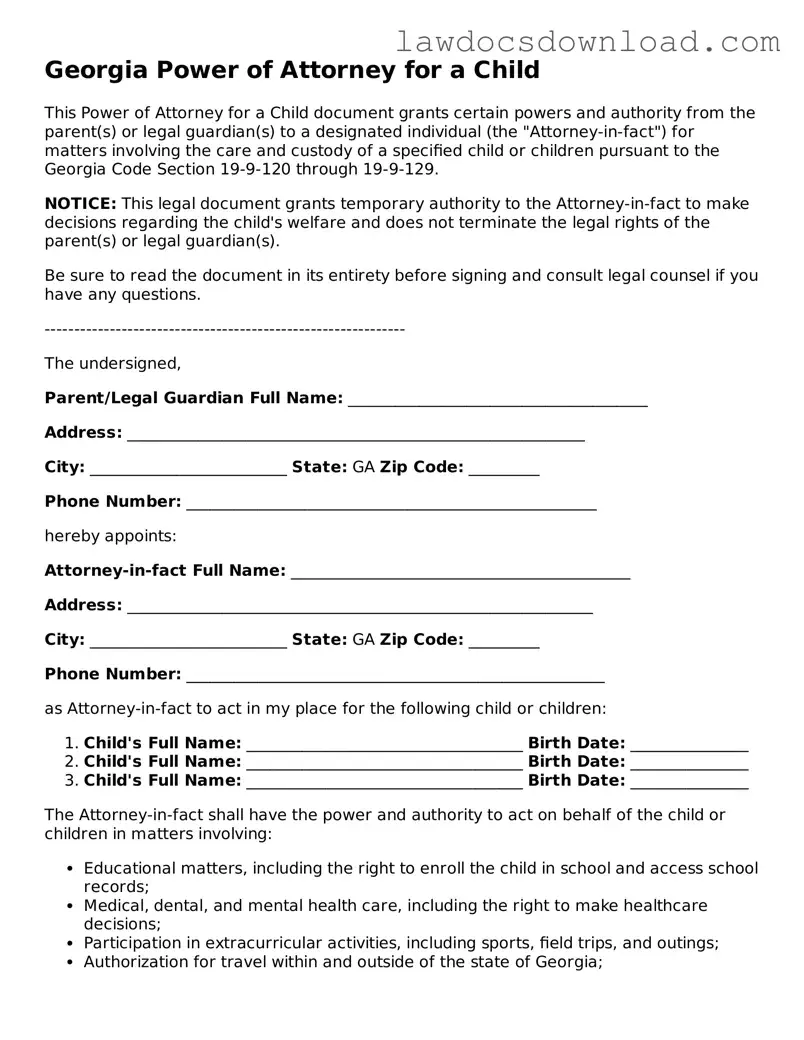Georgia Power of Attorney for a Child
This Power of Attorney for a Child document grants certain powers and authority from the parent(s) or legal guardian(s) to a designated individual (the "Attorney-in-fact") for matters involving the care and custody of a specified child or children pursuant to the Georgia Code Section 19-9-120 through 19-9-129.
NOTICE: This legal document grants temporary authority to the Attorney-in-fact to make decisions regarding the child's welfare and does not terminate the legal rights of the parent(s) or legal guardian(s).
Be sure to read the document in its entirety before signing and consult legal counsel if you have any questions.
-------------------------------------------------------------
The undersigned,
Parent/Legal Guardian Full Name: ______________________________________
Address: __________________________________________________________
City: _________________________ State: GA Zip Code: _________
Phone Number: ____________________________________________________
hereby appoints:
Attorney-in-fact Full Name: ___________________________________________
Address: ___________________________________________________________
City: _________________________ State: GA Zip Code: _________
Phone Number: _____________________________________________________
as Attorney-in-fact to act in my place for the following child or children:
- Child's Full Name: ___________________________________ Birth Date: _______________
- Child's Full Name: ___________________________________ Birth Date: _______________
- Child's Full Name: ___________________________________ Birth Date: _______________
The Attorney-in-fact shall have the power and authority to act on behalf of the child or children in matters involving:
- Educational matters, including the right to enroll the child in school and access school records;
- Medical, dental, and mental health care, including the right to make healthcare decisions;
- Participation in extracurricular activities, including sports, field trips, and outings;
- Authorization for travel within and outside of the state of Georgia;
- Any other activities as deemed necessary for the child's health, education, and welfare.
This Power of Attorney shall become effective on Date: _______________ and shall remain in effect until Date: _______________, unless sooner revoked in writing by the undersigned.
This document is executed in the State of Georgia and shall be governed by, and construed in accordance with, the laws of the State of Georgia.
The undersigned have freely signed this document on Date: ___________________.
__________________________________________
Parent/Legal Guardian Signature
__________________________________________
Attorney-in-fact Signature
State of Georgia, County of ___________________
This document was acknowledged before me on Date: _______________ by ___________________________________ (Parent/Legal Guardian) and ___________________________________ (Attorney-in-fact).
__________________________________________
Notary Public Signature
My Commission Expires: ___________________

